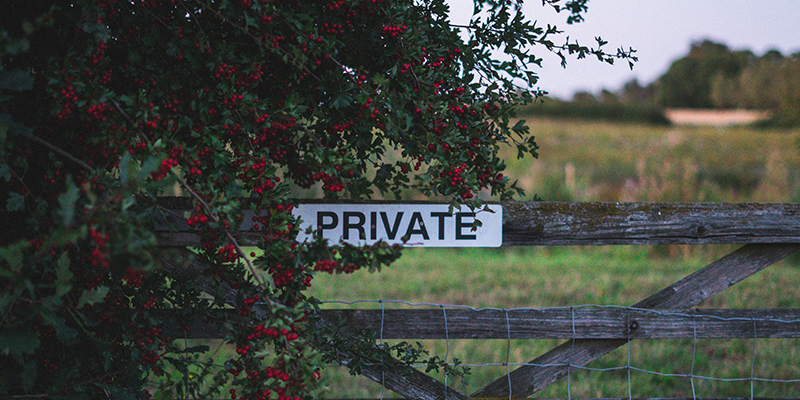It’s not an exaggeration to say that the relationship between data privacy and cybersecurity is a symbiotic one. Data privacy depends upon cybersecurity.
In this article, we will discuss both privacy and cybersecurity and explore how they work together. We will also provide recommendations for improving your organization’s cybersecurity and data privacy posture. Now more than ever, it’s important to stay safe out there!
What is the relationship between cybersecurity and data privacy?
As the world becomes increasingly digitized and cybercrime continues to evolve and escalate, data privacy and cybersecurity have become major priorities for organizations and individuals. Data privacy refers to the protection and management of personal information and cybersecurity focuses on the protection and preventing systems and data from unauthorized access or theft.
Despite their different focus, cybersecurity is a basic requirement for data privacy. Data privacy informs data management practices, while a robust cybersecurity infrastructure can help to protect data once it has been collected. As the stakes continue to rise, it is clear that data privacy and cybersecurity must be given equal attention in order to keep sensitive information safe and maintain compliance with existing and emerging regulations.
Why does this matter for nonprofits?
Nonprofits often collect a great deal of personal information, making them a prime target for cyber criminals. Nonprofits are increasingly relying on technology to further their mission, which means they are also collecting and storing more data. This makes them potential targets for cyberattacks, which can result in the loss or theft of sensitive information.
Data privacy is also a concern for nonprofits, as they may collect personal information from donors, volunteers, and clients. If this information is not properly secured, it could be accessed by unauthorized individuals, which is a breach. As a result, cybersecurity and data privacy are essential considerations for any nonprofit.
Cybersecurity Measures
In order to ensure the safety of your information and data, we suggest that organizations conduct a cybersecurity assessment. A cybersecurity assessment can help you identify potential security risks and take steps to mitigate them. By understanding where your digital assets are vulnerable, you can make changes to improve your overall security posture.
As a nonprofit organization, you are responsible for safeguarding sensitive data and protecting your constituents from cyberattacks. While the stakes may be high, there are some basic steps you can take to reduce your risks.
First, make sure that all of your devices and software are up to date with the latest security patches. This will help to close any vulnerabilities that could be exploited by hackers. Next, use strong passwords and two-factor authentication for all of your accounts. This will make it much harder for unauthorized users to gain access to your systems.
Cybersecurity training should be a regular part of every employee’s development. By receiving regular training, employees can stay up-to-date on the latest threats and best practices for keeping themselves and their organizations safe online.
Data Privacy Measures
As global privacy legislation continues to develop, it is increasingly important for organizations to take data protection and privacy seriously. In light of recent changes, such as the General Data Protection Regulation (GDPR) and emerging laws in various US states and in countries around the world, organizations must adapt their practices to ensure compliance with these regulations.
Organizations that collect, process, and store personal data must be transparent about their data collection practices, provide clear mechanisms for individuals to exercise their rights under these laws, and implement strong security measures to protect personal data from unauthorized access or disclosure.
By taking these steps, organizations can protect themselves from potential fines and other penalties, and ensure that they are respecting the privacy rights of their customers and employees.
Organizations are encouraged to develop a data handling policy. This policy should outline how personal data is collected, used, and protected. By developing this policy, you can help ensure that your organization treats personal data responsibly and protects the privacy of individuals.
An effective data handling policy is also an internal educational document for staff. By having clear guidelines and procedures in place, employees can be better informed about how to handle sensitive information. Creating a data handling policy can help to foster a culture of responsibility and accountability within an organization.
Finally, organizations should provide training for all employees on data protection best practices. By taking these steps, you can help to ensure that the personal data of those associated with your organization is safe and secure.
What next?
Data privacy is a critical issue for nonprofit organizations because it impacts the trust that donors and constituents have in those organizations. Individuals need to feel confident that their personal information will be protected, and cybersecurity is essential to maintaining that confidence. In order to keep your data private and your constituents feeling safe, make sure you are taking steps to protect your organization from cyberattacks.
Join us for our upcoming webinar, “A Little Privacy Please…”, where we will discuss data privacy best practices for nonprofits. You’ll learn about the current laws that apply to many of today’s nonprofits, managing data privacy throughout the lifecycle of your data, and the essential role that cybersecurity plays. We hope to see you there!

